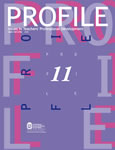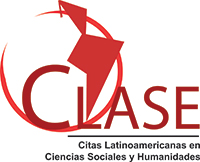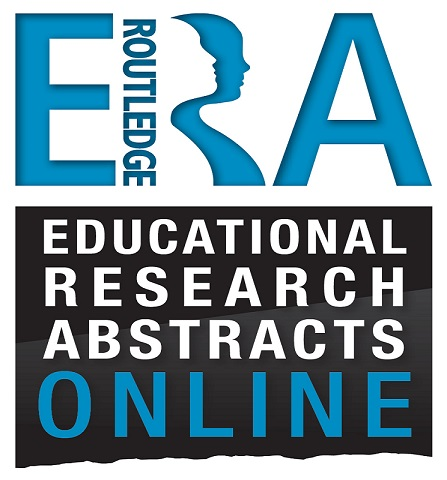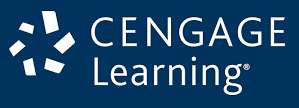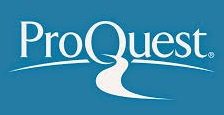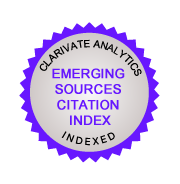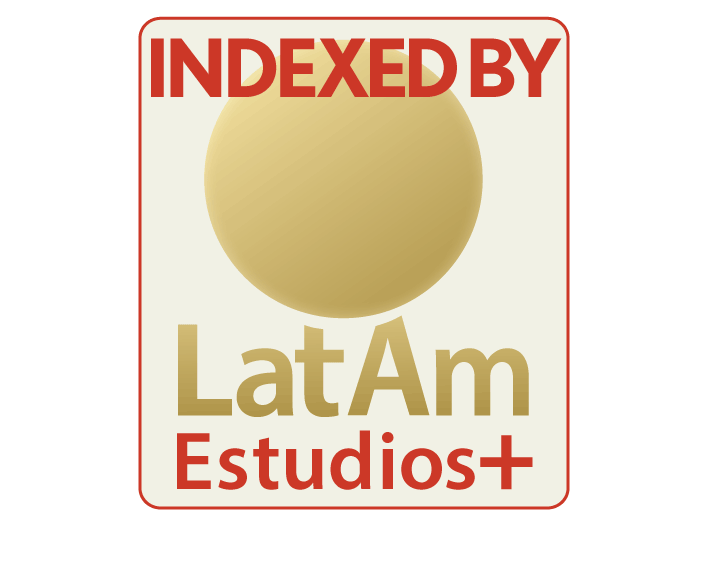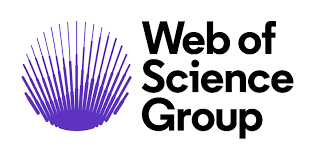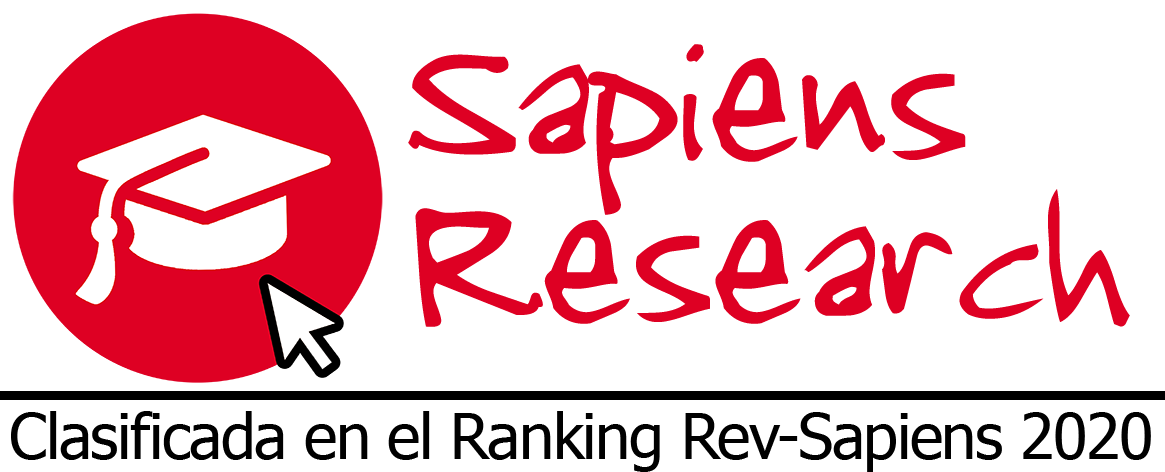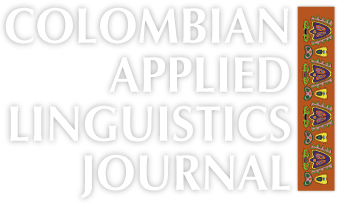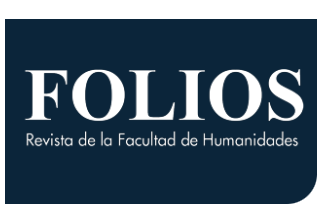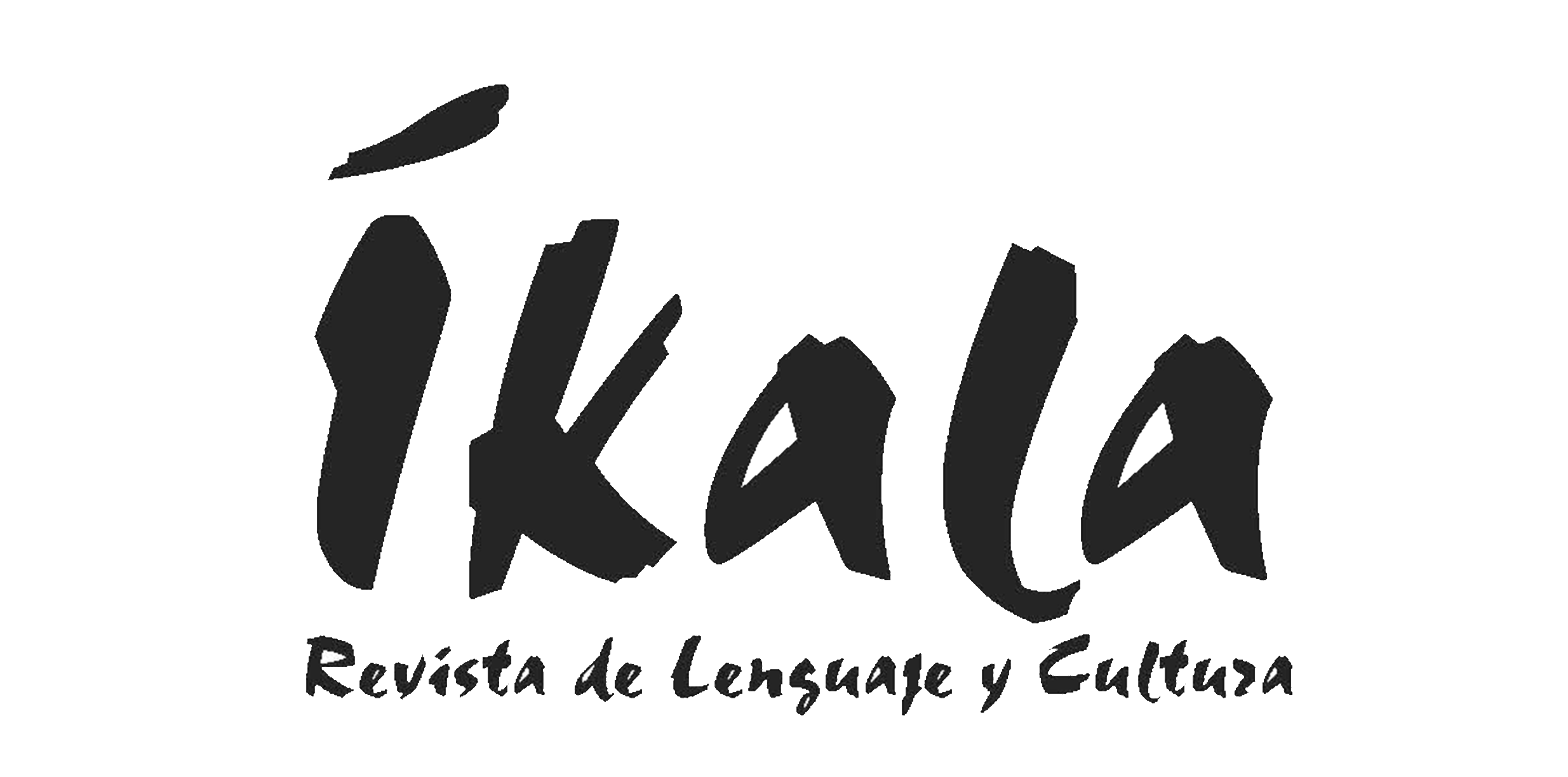Classroom Research and Professional Development
Investigación en el aula y desarrollo profesional
Keywords:
classroom research, teacher development, teacher researcher, educational research (en)investigación en el aula, desarrollo profesional docente, docente-investigador, investigación educativa (es)
This article intends to share the experience of a group of teachers in the Classroom Research Seminar of the Teacher Development Program in English carried out at Universidad del Valle, Cali, from January to June, 2007. The seminar was part of a high-level in-service program for teachers of English of a network of private educational institutions. We would like to share the highlights and difficulties of the experience. We will start with the general framework of the program and the concept of professional development that underlies it. Next we will focus on the classroom research seminar, its objectives, methodology and results. Finally we share the voices of some of the participants, who talk about the influence this seminar had on their professional development and daily work.
Este artículo recoge la experiencia de un grupo de profesores universitarios a cargo de un seminario de investigación en el aula con un grupo de docentes inscritos en el programa de formación y desarrollo profesional docente de la Universidad del Valle y pertenecientes a una red de instituciones. Nuestro objetivo es compartir los logros y dificultades encontradas en el proceso de trabajar con los docentes, desde el aula universitaria, problemáticas de sus propias aulas a partir de objetivos e intereses diversos. Primeramente, presentaremos el marco general del programa y el concepto de formación que lo sustenta; posteriormente nos centraremos en el contexto específico del seminario, sus objetivos metodología y procesos de desarrollo; finalmente exploraremos la incidencia del trabajo desarrollado en el aula universitaria en práctica profesional de los docentes participantes.
Classroom Research and Professional Development
Investigación en el aula y desarrollo profesional
Omaira Vergara Luján* Fanny Hernández Gaviria** Rosalba Cárdenas Ramos***
Universidad del Valle, Colombia, E-mail: overgara@univalle.edu.co, ** E-mail: fannyher@univalle.edu.co, *** E-mail: roscarde@univalle.edu.co, Address: Campus Meléndez, edificio 315. AA 25360, Cali-Colombia.
This article intends to share the experience of a group of teachers in the Classroom Research Seminar of the Teacher Development Program in English carried out at Universidad del Valle, Cali, from January to June, 2007. The seminar was part of a high-level in-service program for teachers of English of a network of private educational institutions. We would like to share the highlights and difficulties of the experience. We will start with the general framework of the program and the concept of professional development that underlies it. Next we will focus on the classroom research seminar, its objectives, methodology and results. Finally we share the voices of some of the participants, who talk about the influence this seminar had on their professional development and daily work.
Key words: Classroom research, teacher development, teacher researcher, educational research
Este artículo recoge la experiencia de un grupo de profesores universitarios que tuvieron a su cargo el seminario de investigación en el aula con un grupo de docentes inscritos en el programa de formación y desarrollo profesional docente de la Universidad del Valle y pertenecientes a una misma red de instituciones. Nuestro objetivo es compartir los logros y dificultades encontradas en el proceso de trabajar con los docentes, desde el aula universitaria, problemáticas de sus propias aulas a partir de objetivos e intereses diversos. Primeramente presentaremos el marco general del programa y el concepto de formación que lo sustenta; posteriormente nos centraremos en el contexto específico del seminario, sus objetivos metodología y procesos de desarrollo; finalmente exploraremos la incidencia del trabajo desarrollado en el aula universitaria en práctica profesional de los docentes participantes.
Palabras clave: Investigación en el aula, desarrollo profesional docente, docente-investigador, investigación educativa
General Framework for the Program
In order to respond to the challenges of our present-day society, the Constitución Política Colombiana (1991), the General Education Law (1994) and the recommendations made by the “Misión de Ciencia, Educación y Desarrollo” or “Misión de sabios” (1994), have included and made provisions for making changes in the educational system. These changes foresee the need to offer teacher education and development programs that prepare present-day educators for a professional and knowledgeable response to the new social and educational challenges. Teachers need to have sound preparation in the following areas:
• Development of a good level of knowledge and competence in their field, concerning not only content but also pedagogic knowledge.
• Development of the tools to build a strong cultural and professional identity, evident in the knowledge of their social and cultural environment and in their roles as agents of social change.
• A positive and decisive attitude to face the need to make research processes a part of their daily work and professional development.
• Capacity to integrate and participate in constructive processes in their area of work.
• Capacity to analyze, reflect and self-evaluate their own academic processes and those of their colleagues and students, with a constructive intention.
• Capacity to participate in educational management.
• Skills to integrate and make use of the resources and possibilities offered in their immediate environment.
As a response to these needs and challenges, the Colombian Framework for English (COFE Project), a bi-national agreement between the governments of Colombia and the United Kingdom (Gómez, 1993), was set up to improve the quality of English teaching in the country. This aim was achieved through the work of Colombian university teachers who taught in Licenciatura programs to prepare English teachers. Six groups of these teachers were sent to universities in the U.K. to work on proposals for the different areas that make up the licenciatura programs. The proposals included guidelines, plans and materials for the development of skills in the foreign language, the integration of theoretical and practical aspects in the licenciatura programs, which included the sociological, psychological, pedagogical, methodological and linguistics aspects of learning and teaching languages, and the research component and evaluation component. They also included reflections and guidelines to teach English at the primary level, guidelines for fostering autonomous behavior in language learners and for professional development and, finally, recommendations for the organization of resource centers (TDP document, Programa de Formación y Desarrollo Profesional Docente (TDP) en Inglés 1998-2004, pp. 4-5).
Resource Centers were also created in about half of these universities in order to support the process of professional development of teachers, offering a place for study, discussion and discovery. It was in this framework that the Teacher Development Program in English at Universidad del Valle was based. It started in 1994 as a result of the participation of the Universidad del Valle in this project.
The TDP is open to individual teachers or, through contracts with governmental or private institutions, to groups of teachers. Teachers in the program may work at the elementary level (they usually start teaching English to comply with the General Education Law), licenciados in languages who work at the elementary and secondary level, in language institutes and eventually, at the tertiary level. Some of teachers have no methodological background and most of them (except for the younger ones) have no research experience beyond the monograph they had to write as a requirement for the completion of their licenciatura program. A requisite to join the program is to be an English teacher or to be in the process of becoming one.
The objectives of the program include, among others, contributing to the construction of the new profile of the English teacher to enable her/ him to face the challenges of the present-day and future society; contributing to the generation of opportunities to share and build community, to motivate, in the case of teachers, the interest for using their classrooms as research areas as well as fostering a positive attitude towards study and well-founded innovation, and sharing knowledge and experiences which leads to the betterment of English teaching at all levels. The program’s duration varies between ten and twelve months, according to the level of competence in the language the teachers have when they join the program and their availability in terms of schedule. The program consists of two hundred and twenty five hours (225) and is valid for five credits.
The curriculum of the program includes language courses, cultural aspects, language teaching methodologies, production and evaluation of materials, introduction to the use of communication and information technologies, ethical aspects of the teaching profession and classroom research. These topics are developed through a variety of activities which includes courses, seminars, workshops, study groups, advisory sessions, research activities, projects, production and the socialization of results (TDP document, 1998-2007).
The research seminar aims at offering the teachers basic research elements which help them to know, understand, evaluate and improve foreign language learning and teaching processes. According to Brumfit & Mitchell (1989), educational research carried out by external agents runs the risk of ignoring the complex and, sometimes, contradictory experiences of classrooms and educational institutions. Research carried out by the teachers is necessary if we want to understand the social experiences of students and teachers from an internal perspective. Zabalza (2004) defines classroom research as a planned and systematic process that aims at understanding and improving their work; it is nurtured by a critical reflection on theory and practice. Hopkins (1993) and Cárdenas (2006) stress the fact that classroom research stems from the teachers’ own initiatives in order to improve their particular practice and that of their colleagues, to generate hypotheses and evaluate theory in practice.
Interest in the promotion of research done by teachers is not recent. Dewey (1899; 1910; 1938) had developed and promoted progressive ideas concerning education; these ideas included the value (primacy) of self-determination, reflection, individual responsibility, and citizenship (in Roberts, 1998), as well as the need to harmonize theory with practice. His contributions have deeply influenced teacher education and can be considered the beginning of the idea of the teacher as a researcher. After Dewey, Lewin (1946) continued developing the social perspective of education in some proposals that also influenced social psychology and professional education. He formulated the initial proposal for action research, which stems from action science, a third paradigm he developed as an alternative to positivism and phenomenology.
The mid 80s and the beginning of the 90s witnessed a growing interest in the promotion of the teacher as a researcher. The work of authors like Schön (1983; 1987), Kemmis & McTaggart, (1988), Nunan (1989), Allwight & Bailey (1991) Hopkins (1993), Stenhouse (1993), De Tezanos, (1998) and Freeman (1998), argue in pro of teacher education that includes research so they can use it as an alternative to transform their work, study their own reality and participate in the construction of understanding teaching and other processes that make up life in the school community. More recently, Cárdenas (2007) reviewed the role of research in language teacher education. In the work of Beck & Kosnik (2006), it was found that research is part of social constructivism, one of the predominant models of teacher education today (Williams & Burden, 1997; Beck & Kosnik, 2006). Her review also showed that other authors and their publications such as Zeichner (1990), Shulman (1998), Darling- Hammond & Brandsford (2005), Cochran-Smith & Zeichner (2005), and (UNESCO, 2006) stress the role of research in the education of teachers today as an important element in curricula and as a key element in professional development. Roberts (1998) proposes the six basic elements in language teacher education; in what he calls “further independent development”, he argues for the provision of “understanding and skills for classroom research” and collaborative curriculum development for pre-service and inservice teachers.
Being a teacher and a researcher at the same time is not an easy task; tensions between the two processes are bound to appear while the teacher learns to balance them. Nevertheless, the inclusion of research in language teaching curricula provides teachers with strategies to combine these two elements, to understand their relationships and to intertwine them in a practical and ethical manner. We feel strongly that research lends teachers the opportunity to confront knowledge generated in other areas, to develop the necessary confidence and security to transform their practice in a way that responds to the needs and possibilities of their particular contexts and to develop the feeling of being professionals, which fosters a sense of belonging to the teaching profession.
The research element of the TDP is planned as a seminar in which teams are organized according to the interests of the teacher-students. These groups have the guidance of research teachers of the School of Language Sciences who have similar academic interests. On-going and final results of these research processes within the groups are socialized in the large group. The TDP considers that it is important to promote the participation of teacher-students in seminars and events in order to share the results of their research and, in the foreseeable future, it is considering the publication of a bulletin or magazine which will collect these productions.
Training vs. Professional Development
Teacher education is understood as a process of continuous development. This assertion is valid for all professions in a fast changing society. Interests and needs change; knowledge increases and ways of doing things evolve. The teaching profession requires educators to keep abreast of the needs of learners in a changing society, of the proposals that result from the dialogue between the work of educators and that of applied linguists and professionals from other sciences, and of the latest developments in technology, among other aspects that affect the exercise of the profession.
Many important names in the language teaching field advocate the need for continuous or periodical updating of teachers (Richards & Nunan, 1990; Maley in Spratt, 1994); Freeman & Richards (1996); Richards (1998); Roberts (1998); Crandall (2000); Crookes (2003); and Richards & Farrell (2005), among others, both in formal, state or national development schemes, or through autonomous work. Most of these authors emphasize the difference between training and education processes for teachers. Cárdenas (2007) revised this aspect of language teacher education in the authors above and concluded that, although initial teacher education, teacher training and teacher development processes all seek to prepare teachers to do their job, their objectives are different because they are based on different conceptualizations of what teacher learning should be. Some of these conceptualizations focus on the learning of skills while others focus on the development of cognitive processes or the development and exercise of reflective practice. In this line of thought, initial education processes are more thorough because they take longer and try to cover all the elements mentioned above. Also, they are usually framed in institutional schemes which are, in principle, more rigorous. Training processes generally respond to a pressing need, to the spur of the moment; the time devoted to the activities is short and the activities do not usually go beyond the level of skills development. There is no time for the consideration of philosophical or theoretical principles that underlie the practical aspects or the analysis of what is proposed. Finally, professional development happens when teachers, after their initial education, get involved in updating programs that keep them in touch with new development in their area. These programs combine information with analysis, comparison, reflection and implications of what is learned.
Maley (in Spratt, 1994) recognizes strong points in both training and development; among the reasons for professional development, he mentions the following:
• The feeling that training courses cannot satisfy the needs of all those who take part in them.
• The need to go beyond training or what comes after training.
• The search for an orientation that characterizes the pressing need to professionalize English (language) teaching.
• The growth in teacher confidence to develop autonomously.
• The promotion of lifelong-learning as the final objective of education.

In teacher professional development decisions are in the hands of the teachers and not in those of the academic leaders. This is probably the most salient feature that differentiates training from development. In TPD it is teachers who decide to join a research project or not and, in case they do, they make all the decisions related to the type of research, the methodology, the population they will work with, and the place, time and duration of project development.
The Classroom Research Seminar
The rationale of the seminar is the need to prepare teachers who are capable of facing, confidently, the challenges they find in today’s classrooms and to transform their work and the mindsets of their students for future work. It is part of a social responsibility to educate dynamic, reflective and critical teachers with the best knowledge possible of their pedagogical task. The need for teachers who are proactive and propose solutions and innovative ideas based on sound knowledge of the specific contexts in which they are framed is a must in today’s society.
The preparation of teachers with these characteristics takes into account the fact that passive knowledge of theory is not enough because it does not guarantee that they are able to generate transformations departing from this knowledge. Consequently, it is necessary to help teachers to develop practical skills to apply and find the implications of theoretical knowledge in their daily classroom reality.
It is commonly accepted that the capacity to carry out research can only be developed through the same research process as a problem-solving process; thus, the same research experience is a necessary element in any program that seeks to prepare students for research. According to Kirschner & van Vilsteren (1997), in Pietersen (2002), what novice researchers need are learning experiences- made up of knowledge, which includes facts, concepts, principles, procedures and theories about a subject and which is characterized by learning, memorization and reproduction- and an element of skills development.
The objectives of the seminar include the following:
• The familiarization with what learning and teaching processes involve through observation and reflection.
• The acquisition of theoretical elements for classroom research design and development.
• The recognition of strengths and limitations of a variety of data collection instruments such as observation, interviews, surveys and diaries.
• The practice and implementation of qualitative and quantitative data analysis, and of ways of organizing and presenting the information.
• The incorporation of all these elements into the design and implementation of a research project in educational institutions.
The syllabus of the research course articulates observation and reflection on the teacher’s own teaching processes, on those of her/his colleagues and on the interactions generated in the classroom. This action is complemented by a theoretical basis about research processes and leads to the design and development of a personal research proposal based on the reality teachers have observed. It is expected that the development of a research project will provide teachers with a methodology to face and solve diverse problems and situations that they encounter in their professional practice. It would not be enough to receive prescriptions about how to face specific situations; for the reflective and critical teacher, the classroom turns into a complex world of interrelations with varied foci of interest.
Among the benefits that the combination of theoretical knowledge and practical research experience offers to teachers we can mention the following:
• The generation of a better level of communication with their students
• An informed level of mutual cooperation with their colleagues
• The skills to observe, reflect and draw conclusions from their own experience
• The skills to identify and prioritize aspects that need to be solved
• Sensitivity to identify opportunities of intervention and the knowledge to do so
• Opportunities to work in teams with their colleagues
These benefits turn into tools which strengthen the professional practice of teachers and encourage them to initiate innovative and transformational experiences.
Description of the Experience
In the present classroom research experience the group was made up of sixteen (16) inservice teachers (IST) who worked for the same institution in different sites in Santiago de Cali and in a neighboring town. Most of them taught a wide range of levels going from basic elementary to high school.
The research course in our TPD program is reserved for those teachers who classify at level III in English because the bibliographic materials for the course are in English to contribute to the development and reinforcement of language competence in academic areas. If the teachers do not have the appropriate language level, reading in English will only add to the complexity of reading about research; this is not an easy task, especially for those teachers who have a degree in areas other than language teaching and have not had research courses before, which was the case of some of the teachers in the group.
Based on the needs that the teachers identify and on the research elements they receive, the seminar offers a reasonably wide panorama of the different types of classroom research to facilitate the understanding and discovery of research options in the educational context; however, this framework has to be deep enough not only to arouse teachers’ interest but also to sustain them through the development of a complete research process that is meaningful for them in practice.
The seminar took place on Saturday mornings from January 20 to May 19, in four-hour sessions. The teachers who oriented the seminar (four from Universidad del Valle and one visiting teacher from Universidad Nacional de Colombia, Bogotá, or UT) held several meetings to design and plan the units that were grouped in modules, following a thematic sequence. For the purpose of this publication, we name the modules as show in Table 2.
Each of the first five modules were under the charge of one of the teachers; they were developed according to previous agreements and the experience of each instructor was shared with the other four. Each module was developed in an average of twelve hours, in three sessions of four hours each. When all the modules and the research reports were done, there was an academic session in which the results of all the research groups were shared. The administrators and academic staff of the institution the teachers work for were invited to this session. In order to experience research based on their own needs and interests, teachers formed sub-groups according to research interests, level they taught, or any other criterion they judged valid for their association. Eight subgroups were formed, each made up of two or three teachers, although there were two teachers who decided to work on their own.
The first module, educational research, explored the concept of research in general and identified and characterized the two predominant research paradigms that have traditionally dominated educational research. The characteristics of qualitative and quantitative research were analyzed; types of research according to function, purpose, time and methodology were described and discussed, as well as the options offered by mixed methods. Later the teachers’ attention and interest were focused on classroom research; in this area, different orientations were considered as alternative ways to get to know, describe and transform the day-to-day work of teachers and students in the classrooms and in educational institutions in general. Practical work was done to identify different types of research design by their characteristics using abstracts and research reports published in national and international journals as well as local theses and monographs. Also, the teachers offered possibilities of ways to develop research topics that were provided, justifying their choice of research type. Teachers reflected on the characteristics of a teacher-researcher and on the advantages of enriching their professional practice through research. Finally, sources of research problems linked with the educational setting were discusssed.
The second module, two ways of doing, allowed us to present in detail two methodological orientations within the qualitative paradigm, ethnography and action research, which have been a focus of interest in the work of the School of Language Sciences for many years. Their use in educational and classroom research has been widely documented in literature and in our own practice. The experience of other research seminars for teachers, of the work with preservice and graduate students and of our own research activities make these two methodologies our favorite alternatives to investigate schools and classrooms.
Malinowski (1884-1942), a Polish anthropologist, shaped the methodology of fieldwork, fundamental in modern anthropology, and set the bases for ethnography. His approach, known as ‘participant observation’, is based on prolonged, detailed observation in the field; this field can be represented by a native community, a group of inner city dwellers, a minority group or a school community. In ethnography, field diaries are used to record information; researchers usually complement data from observation with interviews which clarify and expand information from the point of view of community members. The information is described (descriptive ethnography), analyzed for recurrent patterns, interpreted and related with theoretical constructs. Hypotheses are generated and a report is written. Spradley (1994) embodies this process in five identifiable stages which seem more appropriate for ethnographic work in urban communities and schools: selecting the problem, gathering data, analyzing data (which is done along with data gathering), formulating ethnographic hypotheses and writing the ethnographic report.
Lewin (1890-1947), a Polish social psychologist, coined the term ‘Action research’ in 1934 to describe a form of research that made a connection between the experimental approach of social sciences and social action programs which responded to the main social problems of that time. This approach deals with ways of improving the social life of people by researching their present situation (now and here), and without excluding the influence on wider social structures. It was Corey who, in 1953, associated this type of research with the educational field.
In this seminar action research is not studied; it is used to understand teaching as a process of continuous exploration, in which the teacher has to integrate her/his classroom practice with reflection leading to its analysis. Action research is seen as an essential component of the teaching profession; in this methodological research orientation the problems guide action and, at the same time, teachers’ reflection on their practice makes up the decisive element to solve these problems. It is reflection which serves to identify problems, plan action to take and introduce progressive changes to improve the situations.
Elliott, one of the main names in interpretive action research, understands it as “the study of a social situation that tries to improve the quality of action…” (Elliott, 1993, p. 88). In the same line of thought, Kemmis & McTaggart (1988) argue that education improves with changes and that learning derives from these changes. Reflection, the planning of action and actions themselves allow teachers to explain and justify with sound arguments their ways of doing and acting in the classroom in the search for continuous improvement. All in all, action research constitutes a possibility to systematize reflection about everyday teaching for the betterment of learning and teaching processes because it offers the possibility of interpreting what happens in the classroom from the point of view of those who interact in it, students, teachers and administrators (Elliot, 1993).
Once the foundations of research had been established and the analysis of the possibilities research offers in education had been done, the moment of connecting theory to practice had arrived. We are conscious of the essential role of practical knowledge in the establishment of links between theory and classroom work because it helps to discover possibilities of application and to understand its implications. Module three, proposing, developed orientations to design a research proposal on a small scale, although rigorous and valid. The teachers’ interest and needs shaped research topics through exercises that combined analysis and reflection on their own observational records and their colleagues’. Some of the exercises which had been done in previous units were reviewed to select topics of interest and design a research project.
The next module, learning to do, provided teachers with the necessary elements, both theortical and practical, to design data collection instruments. Having previously selected a topic, the design of instruments and the data collected were relevant to the situation and helped them to plan the necessary steps and actions to implement the project.
There are different models for the construction of research projects and reports. The number and type of the elements they include depend on the theoretical and methodological orientations they follow. Qualitative studies allow more flexibility in their model, which means the researcher has more room for proposing and introducing changes or additions to the initial project. In all cases, most of the contents of the projects are part of the body of the final report; this is a reason why a good writing effort should be done from the start. To guide the construction of the proposals, we agreed on a basic model based on Freeman (1998) and Creswell (1994). The document, which would also be the basis for the evaluation of the module, should contain the following elements:
• Research focus or problem
• Research questions
• Objectives
• Literature revision on the topic
• Methodological design
• Expected results
• Resources needed for implementation
• Timeline
Project design took a lot of extra class work because of time limitations. In our Saturday sessions we could work as a group in defining of problems or topics of interest, the writing of research questions and objectives, and the definition of methodological designs, in which the teachers could select between ethnography or action research. Literature review was only outlined with topics and authors that could be researched.
Research topics and questions do not exist in isolation. It is not a matter of identifying them in a given reality; they have to be built up depending on the needs of the context. However, the knowledge and interest of the researcher, research conditions, resources, the data collection and data analysis procedures that the investigator decides to use play an important role in their construction.
In module four, learning to do, several data collection instruments were presented but attention was focused on familiarizing teachers only with the ones which are fundamental to qualitative research. Briones (2001) states that classroom observation is useful when we search to obtain information about behavior and interaction among the participants in a given context. In this research experience teachers learned about observation, focusing especially on the processes of description and interpretation. They observed their own classrooms during the first two weeks of the project in order to become conscious of what seemed to be obvious: how life in their classrooms evolved. Unstructured observation was used and observational records were kept in their field diaries; at the end of this two-week period they had already pinpointed an aspect of their classroom they wanted to research by means of analyzing the information recorded in their diaries.
Diaries are one of the most useful instruments in this type of research because they allow the researcher to make full, detailed and precise entries of an experience. Diaries are used in combination with participant or non participant observation and interviews. In this experience teachers used both. Through the use of these instruments we tried to help teachers describe their pedagogical experiences in depth and identify situations and problems that needed intervention in order to improve their daily work. A class diary allows inquiry into the teachers’ reactions concerning their work and their progress in the research processes, in relation to the comprehension and appropriation of the new knowledge, both theoretical and practical.
In the practice of keeping a diary, rereading their entries and reflecting upon them, the teachers started to notice and record aspects of their work or information that was important to take into account in terms of structure or content of their courses. They were aware of the need to make detailed, accurate records in order to have complete and reliable information to systematize and analyze when looking at results. The entries in their own diaries showed them why it was so important to make thorough, systematic and periodical recordings of information (Zabalza, 2004).
Through the writing of diaries and a preliminary analysis to identify specific problems or situations to investigate, teachers obtained elements to design an interview, another useful instrument to go deeper into what has been observed or to expand information generated by the curiosity of the researcher (Cohen, Manion & Morrison, 2001). It is understood that many times, interviews stem from the fact that the information we have about a topic is not enough, and that the collaboration of one or several people who possess the knowledge we lack is of great importance in this process. With this view in mind, the interview was introduced and studied as a process in which they asked each other, as researchers, about aspects that generated their curiosity and interest according to the specific objectives of the situations they were studying.
In addition to the formal elements of design and administration of interviews, we took into account several other aspects that are of great relevance in their use, such as ways to guarantee that they yield the necessary information and ethical aspects; among these, the voluntary participation of the subjects and confidentiality were especially stressed. Teachers understood that, for an interview to be valid, it had to be an interaction in which cooperation is the key to obtain information that is necessary, relevant and sufficient and that it is presented openly and clearly by the interviewee.
Once the information was obtained through diaries, observational records or interviews, we proceeded to a final stage of analysis-preliminary, analysis had been carried out during data collection processes in order to confirm the focus of interest or to make possible changes in data collection. The module, discovering, started emphasizing the flexible nature of the procedure of analysis that adds to the difficulty of this stage in qualitative research. Although nowadays some models of analysis in research reports are available, these processes are not all the same; in fact, it is difficult to find two qualitative investigations that share exactly the same process of analysis. As a result, there is no specific structure to follow because the process of analysis builds knowledge departing from the interpretation, inference and discovery of data which are linked to the specific context being researched.
Although there are differences in the steps and ways to carry out a process of analysis, according to the theroetical foundations of research, all authors coincide in the need to use procedures that guarantee validity and credibility of the information. Burns (1999) asserts that qualitative research should respond to questions about the trustworthiness of the claims based on the outcomes of the process, and about the generalisability to other contexts or subjects. She cites the claims of other authors such as Erickson (1986), Davis (1995) and Anderson et al. (1994), who claim that there are other questions qualitative research should answer that respond to new concepts of validity, namely “the credibility of the researchers’ interpretations”(p. 161); this refers to how much the participants in a research study consider true and believable the claims the researcher is making about their community. A way to ensure trustworthiness in qualitative processes is by the use of triangulation; the concept was defined by Cohen, Manion & Morrison (2001, p. 112) as the use of two or more methods of data collection in the study of some aspect of human behavior. Silverman (1993, p. 156, in Burns 1999, p. 163) includes not only methods, but also kinds of data (quantitative and qualitative) and says that the purpose of triangulation is to see “whether the data and the methods corroborate one another”. Freeman (1998) states that triangulation allows claims to stand on their own; tiangulated information is better balanced and interrelated with all the variables included in a research study.
These concepts were studied and put into practice with the seminar group as a whole, making use of their own or other researchers’ information, and, as concepts and procedures became clear to teachers, the sub-groups initiated their own analysis with the assistance of the module orientator. The first steps of analysis (identification of general topics or wide categories) were presented in the large group with the aim of sharing ways to handle information to enrich the work of sub-groups. Progress in the analysis and in the research process in general, varied from one group to another. Nevertheless, it was guaranteed that all subgroups had a clear idea of the procedure they were carrying out so they could finish the research process within the time limits. While the individual processes of analysis were in progress, the revision of the research project written in the module proposing started as a preliminary action towards the writing of the final research report, which constituted the final module, formalizing discoveries. In most cases these initial projects had to be focused, reduced or transformed to advance in the process. In this new stage, the teachers had individualized advisory sessions from one of the teachers who oriented the seminar; they worked cooperatively in their own time, according to the availability and requirements of each of the members of the sub-groups. Each of the seminar teachers accompanied the work of two sub-groups.
Once all the research and organizational guidelines were given, teachers continued with the process of analysis of their information: grouping, defining specific categories and sub-categories, eliminating initial categories that were found of little relevance for the study because of their low frequency or because they could be assimilated into others. Emergent categories were revised and the final categories consolidated in the process. Next, the interrelation between categories and the definition of significant chunks to illustrate analysis were selected. In the final writing process new theoretical requirements arose from the results and were met by the teachers who, at this stage of the process, were totally identified with their work and very enthusiastic about it; this attitude eased, in each case, the task of writing a theoretical frame of reference, a process that is usually daunting for similar groups of students. In this way, without setbacks and with the help provided by the reading of some final reports by other researchers, the teachers could finish the process of writing their own reports.
As we expected, homogeneity was not the rule: among the sub-groups, some had a better pace and rapidly found their own working style, while others had a more complex acommodation process. Also, incorporating theory in the analysis was an easier process for some groups than for others. However, all participants in the experience had significant achievements that were evident in their final reports and their public presentations. Only one teacher did not finish his project.
The projects that were carried out show the teachers’ concerns about their professional practice at the different levels they teach; they also show the methodological orientations that were proposed by the team of orientators. Below are the topics of the research projects the teachers developed:
• The effect of pop music in English language learning.
• How students in group 10-5 perceive their English language learning.
• How students in a group of 7th graders and one of 9th graders perceive the use of games in their English language learning.
• Developing writing in a foreign language in fifth grade through the use of short stories.
• Summarizing as a strategy to improve reading comprehension.
• The role of games in the English class.
• Improving listening comprehension in English in a group of 5th grade students.
The Participants' Voice
In the following pages we will present the real experience of the classroom and that of research teachers concerning the classroom research seminar. To obtain information that allowed a genuine view of participants’ feelings and voices, two surveys for the two groups of teachers (IST and UT) were designed (See appendices 1 for IS T’s, and 2 for UT’s surveys).
The In-Service Teachers (IS T's)
The survey that was given to in-service teachers tried to establish their demographic information and the perceptions, feelings and projections generated by the experience in the classroom research seminar.
It was sent to the fifteen teachers who participated in the experience but only seven of them filled it out and returned it. However, we can say that it constitutes a representative sample of the group because it covers most of the projects carried out. Of these seven teachers, there were three women and four men between twenty-two and fifty-five years of age and they were in charge of all the grades in secondary school. Four of them had previous experience in research courses, but mostly from a theoretical perspective; only three recognized having actually experienced research in their preparation to become “Licenciados” in languages.
The teachers stated that they had trust and confidence in the teachers who oriented the seminar; it was important for them to realize that they were heard, and that they could count on the seminar teachers for orientation not only in the Saturday sessions but also at all other times in case they were uncertain or had doubts about their work. They created their own expectations to face the new theoretical contents and felt satisfied to work on real problems that were affecting their work as teachers at that time. Also, they were satisfied to realize that the contents of the seminar were totally relevant in their profession. As one of the teachers put it, “I found the development course to be very important and enriching to my growth process as a foreign language teacher” (IS T 5).
Among the difficulties that in-service teachers experienced, lack of time seems to have been the most difficult to deal with. This is a problem inservice teachers usually have to face when they decide to research their professional practice; they feel that their usual academic duties demand a great amount of time, making it very difficult to meet the requirements of a classroom process or seminar. In like manner, they found difficulties to accommodate their schedules at school to do their work and to get together and work collaboratively. (IS T 7) expressed it this way: “Especially the lack of time to comply with the number and extension of the tasks”. To a lesser degree, teachers recognized it was difficult for them to keep a constant pace, to stay focused and disciplined in order to complete the research process.
Concerning the incidence of the knowledge they acquired and the skills developed in the seminar in their professional life, teachers found that many of the aspects they covered in the seminar make part of teaching reality. These aspects are mostly related to the sense of responsibility in their professional exercise, which is in accordance to their students’ performance. They constantly evaluate their pedagogical practice in search for elements that could affect their students’ work; they constantly search for solutions and guidelines to improve the quality of education; they allow themselves to try and improve some teaching strategies that have an incidence in the good performance of their students. They also appreciate the new knowledge that they found, by themselves, during the development of their research. In the words of IS T 1, “With this new knowledge I learnt a lot in terms of the development of reading and writing skills with my students”.
Teachers think that the theoretical knowledge they obtained in the seminar generated specific research questions about the educational context they work in; the search for answers to these questions benefited teachers as well as students and earned them institutional recognition. IS T 2 expressed that… “By analyzing the theory presented in the course I could, with my colleagues, devise an investigation that was advantageous for me, my colleagues and my students, and it received recognition from the institution where I work”. It is also worth mentioning the recognition that some of the in-service teachers, who have not completed their Licenciatura studies, gave to this process. They stated that not only did the seminar contribute to the betterment of their work; it also helped them in the process of completing their research monograph, the last requirement for them to graduate from college. According to IS T 3, “I think that everything has helped me to develop my thesis study and also has made me curious and more investigative about what happens in the classroom”.
Finally, the teachers estimate that the learning derived from this seminar keeps making a contribution to the betterment of their work today because they were able to integrate theory and practice in their own working environment. In the words of IS T 4, “We were able to make practical use of the course, a factor which enriched us and our students greatly”.
Further Comments and Opinions from the In-Service Teachers
Some other comments obtained from the in-service teachers are related to their interest in continuing to participate in similar seminars, for they think they learn and experience a sense of accomplishment when they witness positive changes in their students. As expressed by IS T 5, “I learned a lot during this process. I also enjoyed doing the research and witnessing the results that were obtained”. Teachers also expressed their interest for their research to get published in the immediate community in order to motivate other colleagues to do research. They appreciated the reduction that the team of university teachers made of the theoretical contents of the seminar, leaving more room for the development of practical activities. In addition, they found that the definition of research focus and instruments of data collection from the start was a sensible decision because it allowed them to be focused from the start, which was the best course of action taking into account the reduced duration of the experience. All in all, in-service teachers deeply appreciated the seminar experience, as expressed by IS T 3: “In my own case, it was very enriching and it is serving my studies well”. Nevertheless, there is still a great concern because of the lack of time to get involved in these kinds of activities, and to respond to the demands of educational regulations nowadays.
Comments, Feelings and Opinions from University Teachers (UT's)
The survey given to the university teachers was centered on discovering the impressions and feelings generated by the experience of teaching in-service teachers to do research, in contrast to teaching pre-service teachers. It also aimed at finding out the feelings that university teachers identified in in-service teachers, and the positive aspects and difficulties they encountered in the experience. Five female university teachers, all with previous experience in teaching research seminars, answered the survey.
Although at the beginning the university teachers were anxious and worried about the responsibility they were facing, the enthusiasm and achievements of the in-service teachers made it a worthwhile experience. One of the teachers (UT 1) expressed her satisfaction with these words: “The fact that the teachers were able to rise above prejudices and advance in their proposals, shows that it is possible to integrate researching and teaching”.
The university teachers found that most of the in-service teachers were responsible for the fulfillment of their duties as teachers; they also witnessed the respect they have for the work the university does, their surprise and enthusiasm concerning their new knowledge and, above all, the satisfaction they experienced after completing their work. This satisfaction is better understood when these feelings are contrasted with opposite feelings in-service teachers also experienced: resistance to change, fear regarding the theoretical contents, and anxiety in concerning the research task, fatigue at some moments, uncertainty, concern, and dependence on their teachers at the moment of making decisions about their projects.
Furthermore, the university teachers particularly appreciated the knowledge in-service teachers have about the real conditions of educational activities in the community; not only did they have the context to practice what they were learning about research, but they also had real needs and problems to solve and this fact motivated them because they saw the usefulness of research processes. On the other hand, classroom work is enhanced by research processes and this adds sense and value to it. UT 2 expressed that “[…] you see, feel and value the work, because the real classrooms give sense to classroom investigation”.
Another strong point of the process is related to the fact that all in-service teachers belonged to the same institution. They shared a teaching context and this allowed them to delve into interests and needs that were common to all of them. In addition, the institution got involved in the process and made it possible for teachers to work collaboratively and to find, as a group, a useful alternative to qualify teaching. Although the teachers belonged to the same institution, their previous work made them participants with diverse experiences to contribute to the process.
The previous experience, shared to a certain extent by the teachers who were in charge of the seminar, and the collaborative work they did to design and prepare the activities are valued as a strength and make possible the claim that work that is well-planned by teams groups the best of each of the members and allows significant advances in the processes. In spite of all this, it cannot be ignored that it is the same knowledge of reality, prejudices and the load of unfortunate previous experiences that causes fear, resistance and forewarning concerning the possibility of undertaking research. University teachers agreed with in-service teachers in considering time as the most difficult element to handle, both to cover the contents of their modules and to provide frequent and thorough individual advisory sessions.
Other difficulties university teachers mentioned included the heterogeneity of the group, especially because of the teachers who had a good level of English but no previous studies in didactics or pedagogy. This added difficulty to the handling and understanding of the reading materials that covered theoretical and conceptual issues in the seminar.
The development of the research projects, their public presentation and the final report are, to a certain extent, indicators of the way the new knowledge has influenced the everyday work of teachers. During the seminar, the most experienced teachers improved their knowledge of research procedures, which was practically absent from their professional background up to that time, while younger teachers, who had had the necessary background in pedagogy, methodology and research in their undergraduate studies, showed creativity in analyzing their data, validating their results with theory and presenting their final reports. It is expected that the work they did in the development of the seminar will provide lasting tools and motivation to continue trying to improve their work in the classrooms. One of the groups reported having continued with research work on their own.
By way of conclusion, we could say that this encounter of teachers with research responds to the new challenges of today’s society, the new political Constitution of the country, the General Education Law and the recommendations made by the “Misión de Sabios de Ciencia, Educación y Desarrollo”. This new knowledge brings about changes in education which can be seen in the positive and determined attitude of teachers to identify and solve problems in their educational contexts, departing from their own evaluation of academic processes. These changes are also reflected in the teachers’ interest in taking an active part in development programs, building up through them the ability to work cooperatively and establishing their cultural and professional identities and, in general, in exploring their capacity to participate in educational management.
It is very important that in-service teachers and the institutions that offer development programs for them realize how pressing the need to involve teachers in classroom investigation is. Apart from all the aspects we discussed in the development of this paper, the study of classrooms by teachers helps in the development of learning and teaching theories which makes sense in our immediate educational community and includes the teaching profession, among others, that are generators and not only consumers of knowledge. We may expect some resistance on the part of the teachers or the institutions. To do research requires, in addition to theoretical and conceptual preparations, personal motivation to overcome difficulties, finding time and accepting challenges. The programs offered nowadays have two main drawbacks: on the one hand, their seminars are compulsory because they are part of institutional initiatives and do not respond to spontaneous interest to do research on the part of teachers. As a result, theoretical and conceptual information, fundamental in research processes, become confusing and dif- ficult to approach. On the other hand, working conditions do not usually allow teachers to find time to document, analyze, study in depth and develop in practice all the skills necessary to carry out systematic and rigorous research processes; their days are busy with teaching, planning and preparing, correcting and grading, attending meetings and completing reports.
Preparation for research with the characteristics we presented above helps in creating the appropriate academic conditions; however, the real transformation of teachers into teacher-researchers is directly linked to institutional conditions and, most importantly, to teachers’ internal motivations, the ones that allow individuals to overcome difficulties and accept challenges to reach their goals.
References
Allwight D., & K. M. Bailey. (1991). Focus on the language classroom. Cambridge: Cambridge University Press.
Anderson, G. L., Herr, K., & Nihlen, A. S. (1994). Studying your own school. An educator’s guide to Qualitative Practitioner Research. Thousand Oaks, CA: Corwin Press.
Beck, C., & Kosnik, C. (2006). Innovations in teacher education. A social constructivist approach. New York: State University of N.Y. Press.
Briones, G. (2001). La investigación social y educativa. Módulo I y II. Bogotá: Convenio Andrés Bello.
Brumfit, C., & Mitchell, R. (1989). The language classroom as a focus for research. ELT documents, 133, 3-15.
Burns, A. (1999). Collaborative action research for English language teachers. Cambridge: Cambridge University Press.
Cárdenas, M. L. (2006). Orientaciones metodológicas para la investigación-acción en el aula. Lenguaje, 34, 187-216.
Cárdenas, R. (2007). Descripción de los programas de didáctica de las lenguas extranjeras en siete licenciaturas del país y de cómo estos responden a las expectativas y necesidades de los estudiantes al inicio de la práctica docente. Sabbatical research Project. Unpublished. Santiago de Cali: Universidad del Valle.
Cochran-Smith, M., & Zeichner, K. M. (2005). Studying teacher education. The report of the AERA panel on research and teacher education. Mahwah, N.J. and London: Lawrence Erlbaum Associates, Publishers.
Cohen. L., Manion, L., & Morrison, K. (2001). Research methods in education (5th Edition). London & New York: Routledge Falmer.
Colombia. Ministerio de Educación Nacional [MEN]. (1994). Colombia: Al filo de la oportunidad. Informe Conjunto Misión de Ciencia, Educación y Desarrollo. Santafé de Bogotá: Author.
Colombia. Ministerio de Educación Nacional [MEN]. (1994) Ley General de Educación (Ley 115 del 8 de Febrero de 1994). Santafé de Bogotá: Autor.
Crandall, J. (2000). Language teacher education. Annual Review of Applied Linguistics, 20, 34-55.
Creswell, J. W. (1994). Research design: Qualitative and quantitative approaches. Thousand Oaks, CA: Sage.
Crookes, G. (2003). A practicum in TESOL. Professional development through teaching practice. Cambridge: Cambridge Language Education.
Darling-Hammond, L., & J. Bransford. (2005). (Eds.), Preparing teachers for a changing world (pp. 232- 274). San Francisco: Jossey-Bass.
Davis, K. (1995). Qualitative theory and methods in applied linguistics research. TESOL Quarterly, 29(3), 427-454.
De Tezanos, A. (1998). Una etnografía de la etnografía. Aproximaciones metodológicas para la enseñanza del enfoque cualitativo en la investigación social. Colección Pedagogía Siglo XXI. Bogotá: Antropos.
Dewey, J. (1899). The school and society. Chicago: University of Chicago Press.
Dewey, J. (1910). How we think. Boston: D. C. Heath.
Dewey, J. (1938). Experience and education. New York: Collier.
El Camino. Constitución Política Colombiana. (1991). Manizales: Publicaciones Universidad de Caldas.
Elliott, J. (1993). El cambio educativo desde la investigación-acción. Madrid: Morata.
Erickson, F. (1986). Qualitative Methods in Research on Teaching. In M. C. Johnson, & L. B. Christensen, (2000). Educational Research: Quantitative and Qualitative Approaches. USA: Allyn & Bacon.
Freeman, D. (1998). Doing teacher research. From inquiry to understanding. Boston: Heinle and Heinle.
Freeman, D., & Richards, J. (1996). (Eds.), Teacher learning in language teaching. Cambridge: Cambridge University Press.
Gómez, E. et al. (1993). COFE working document No.3. Evaluation, testing and action research. London: Thames Valley University.
Hopkins, D. (1993). A teacher’s guide to classroom research, (2nd Edition) Philadelphia: Open University Press.
Kalmbach-Phillips, D., & K. Carr. (2006). Becoming a teacher through action research. Process, context and self-study. New York, London: Routledge.
Kemmis, S., & McTaggart, R. (1988). Cómo planificar la investigación-acción. Barcelona: Laertes.
Lewin, K. (1946). Action research and minority problems. Journal of Social Issues 2(4), 34-46.
Nunan, D. (1989). The teacher as researcher. ELT Documents, 133, 16-32.
Pietersen, C. (2002, June). Research as a learning experience: A phenomenological explication. The Qualitative Report, 7(2). Retrieved March 1, 2008, from http://www.nova.edu/ssss/QR/QR7-2/pietersen.html
Programa de Formación y Desarrollo Profesional Docente en Inglés. (1998-2007). Documento oficial. Escuela de Ciencias del Lenguaje. Santiago de Cali: Universidad del Valle.
Richards, J. C., & Farrell, T. S. C. (2005). Professional development for language teachers. Strategies for teacher learning. Cambridge: Cambridge University Press
Richards, J., & Nunan, D. (1990). Second language teacher education. Cambridge: Cambridge University Press.
Richards, J. (1998). Beyond training. Cambridge: Cambridge University Press.
Roberts, J. (1998). Language teacher education. London: Arnold.
Schön, D. (1983). The reflective practitioner: How professionals think in action. New York: Basic Books.
Schön, D. (1987). Educating the reflective practitioner. San Francisco: Jossey- Bass.
Shulman, L. S. (1998). Theory, practice and the education of professionals. Elementary school journal, 98(5), 511-526.
Spradley, J. P. (1994). Observación participante. New York. USA: Holt, Rinehart & Winston.
Spratt, M. (1994). English for the teacher: A language development course. United Kingdom: Cambridge University Press.
Stenhouse, L. (1993). La investigación como base de la enseñanza. Madrid: Ediciones Morata.
Williams, M., & Burden, R. (1997). Psychology for language teachers. A social constructivist approach. Cambridge: Cambridge University Press.
UNESCO. (2006). Modelos Innovadores en la Formación Inicial Docente. Estudio de casos de modelos innovadores en la formación docente en América latina y Europa. Santiago de Chile: Oficina Regional de Educación para América Latina y el Caribe. Retrieved January 26, 2007, from http://www.unesco.cl
Zabalza, M. A. (2004). Diarios de clase: un instrumento de investigación y desarrollo profesional. Madrid: Narcea.
Zeichner, K. M. (1990). Changing directions in the practicum: Looking ahead to the 90’s. Journal of Education for Teaching. 16(2) 105-132.
References
Allwight D., & K. M. Bailey. (1991). Focus on the language classroom. Cambridge: Cambridge University Press.
Anderson, G. L., Herr, K., & Nihlen, A. S. (1994). Studying your own school. An educator’s guide to Qualitative Practitioner Research. Thousand Oaks, CA: Corwin Press.
Beck, C., & Kosnik, C. (2006). Innovations in teacher education. A social constructivist approach. New York: State University of N.Y. Press.
Briones, G. (2001). La investigación social y educativa. Módulo I y II. Bogotá: Convenio Andrés Bello.
Brumfit, C., & Mitchell, R. (1989). The language classroom as a focus for research. ELT documents, 133, 3-15.
Burns, A. (1999). Collaborative action research for English language teachers. Cambridge: Cambridge University Press.
Cárdenas, M. L. (2006). Orientaciones metodológicas para la investigación-acción en el aula. Lenguaje, 34, 187-216.
Cárdenas, R. (2007). Descripción de los programas de didáctica de las lenguas extranjeras en siete licenciaturas del país y de cómo estos responden a las expectativas y necesidades de los estudiantes al inicio de la práctica docente. Sabbatical research Project. Unpublished. Santiago de Cali: Universidad del Valle.
Cochran-Smith, M., & Zeichner, K. M. (2005). Studying teacher education. The report of the AERA panel on research and teacher education. Mahwah, N.J. and London: Lawrence Erlbaum Associates, Publishers.
Cohen. L., Manion, L., & Morrison, K. (2001). Research methods in education (5th Edition). London & New York: Routledge Falmer.
Colombia. Ministerio de Educación Nacional [MEN]. (1994). Colombia: Al filo de la oportunidad. Informe Conjunto Misión de Ciencia, Educación y Desarrollo. Santafé de Bogotá: Author.
Colombia. Ministerio de Educación Nacional [MEN]. (1994) Ley General de Educación (Ley 115 del 8 de Febrero de 1994). Santafé de Bogotá: Autor.
Crandall, J. (2000). Language teacher education. Annual Review of Applied Linguistics, 20, 34-55.
Creswell, J. W. (1994). Research design: Qualitative and quantitative approaches. Thousand Oaks, CA: Sage.
Crookes, G. (2003). A practicum in TESOL. Professional development through teaching practice. Cambridge: Cambridge Language Education.
Darling-Hammond, L., & J. Bransford. (2005). (Eds.), Preparing teachers for a changing world (pp. 232- 274). San Francisco: Jossey-Bass.
Davis, K. (1995). Qualitative theory and methods in applied linguistics research. TESOL Quarterly, 29(3), 427-454.
De Tezanos, A. (1998). Una etnografía de la etnografía. Aproximaciones metodológicas para la enseñanza del enfoque cualitativo en la investigación social. Colección Pedagogía Siglo XXI. Bogotá: Antropos.
Dewey, J. (1899). The school and society. Chicago: University of Chicago Press.
Dewey, J. (1910). How we think. Boston: D. C. Heath.
Dewey, J. (1938). Experience and education. New York: Collier.
El Camino. Constitución Política Colombiana. (1991). Manizales: Publicaciones Universidad de Caldas.
Elliott, J. (1993). El cambio educativo desde la investigación-acción. Madrid: Morata.
Erickson, F. (1986). Qualitative Methods in Research on Teaching. In M. C. Johnson, & L. B. Christensen, (2000). Educational Research: Quantitative and Qualitative Approaches. USA: Allyn & Bacon.
Freeman, D. (1998). Doing teacher research. From inquiry to understanding. Boston: Heinle and Heinle.
Freeman, D., & Richards, J. (1996). (Eds.), Teacher learning in language teaching. Cambridge: Cambridge University Press.
Gómez, E. et al. (1993). COFE working document No.3. Evaluation, testing and action research. London: Thames Valley University.
Hopkins, D. (1993). A teacher’s guide to classroom research, (2nd Edition) Philadelphia: Open University Press.
Kalmbach-Phillips, D., & K. Carr. (2006). Becoming a teacher through action research. Process, context and self-study. New York, London: Routledge.
Kemmis, S., & McTaggart, R. (1988). Cómo planificar la investigación-acción. Barcelona: Laertes.
Lewin, K. (1946). Action research and minority problems. Journal of Social Issues 2(4), 34-46.
Nunan, D. (1989). The teacher as researcher. ELT Documents, 133, 16-32.
Pietersen, C. (2002, June). Research as a learning experience: A phenomenological explication. The Qualitative Report, 7(2). Retrieved March 1, 2008, from http://www.nova.edu/ssss/QR/QR7-2/pietersen.html
Programa de Formación y Desarrollo Profesional Docente en Inglés. (1998-2007). Documento oficial. Escuela de Ciencias del Lenguaje. Santiago de Cali: Universidad del Valle.
Richards, J. C., & Farrell, T. S. C. (2005). Professional development for language teachers. Strategies for teacher learning. Cambridge: Cambridge University Press
Richards, J., & Nunan, D. (1990). Second language teacher education. Cambridge: Cambridge University Press.
Richards, J. (1998). Beyond training. Cambridge: Cambridge University Press.
Roberts, J. (1998). Language teacher education. London: Arnold.
Schön, D. (1983). The reflective practitioner: How professionals think in action. New York: Basic Books.
Schön, D. (1987). Educating the reflective practitioner. San Francisco: Jossey- Bass.
Shulman, L. S. (1998). Theory, practice and the education of professionals. Elementary school journal, 98(5), 511-526.
Spradley, J. P. (1994). Observación participante. New York. USA: Holt, Rinehart & Winston.
Spratt, M. (1994). English for the teacher: A language development course. United Kingdom: Cambridge University Press.
Stenhouse, L. (1993). La investigación como base de la enseñanza. Madrid: Ediciones Morata.
Williams, M., & Burden, R. (1997). Psychology for language teachers. A social constructivist approach. Cambridge: Cambridge University Press.
UNESCO. (2006). Modelos Innovadores en la Formación Inicial Docente. Estudio de casos de modelos innovadores en la formación docente en América latina y Europa. Santiago de Chile: Oficina Regional de Educación para América Latina y el Caribe. Retrieved January 26, 2007, from http://www.unesco.cl
Zabalza, M. A. (2004). Diarios de clase: un instrumento de investigación y desarrollo profesional. Madrid: Narcea.
Zeichner, K. M. (1990). Changing directions in the practicum: Looking ahead to the 90’s. Journal of Education for Teaching. 16(2) 105-132.
How to Cite
APA
ACM
ACS
ABNT
Chicago
Harvard
IEEE
MLA
Turabian
Vancouver
Download Citation
Article abstract page views
Downloads
License
Copyright (c) 2009 Omaira Vergara Luján; Fanny Hernández Gaviria, Rosalba Cárdenas Ramos

This work is licensed under a Creative Commons Attribution-NonCommercial-NoDerivatives 4.0 International License.
You are authorized to copy and redistribute the material in any medium or format as long as you give appropriate credit to the authors of the articles and to Profile: Issues in Teachers' Professional Development as original source of publication. The use of the material for commercial purposes is not allowed. If you remix, transform, or build upon the material, you may not distribute the modified material.
Authors retain the intellectual property of their manuscripts with the following restriction: first publication is granted to Profile: Issues in Teachers' Professional Development.



